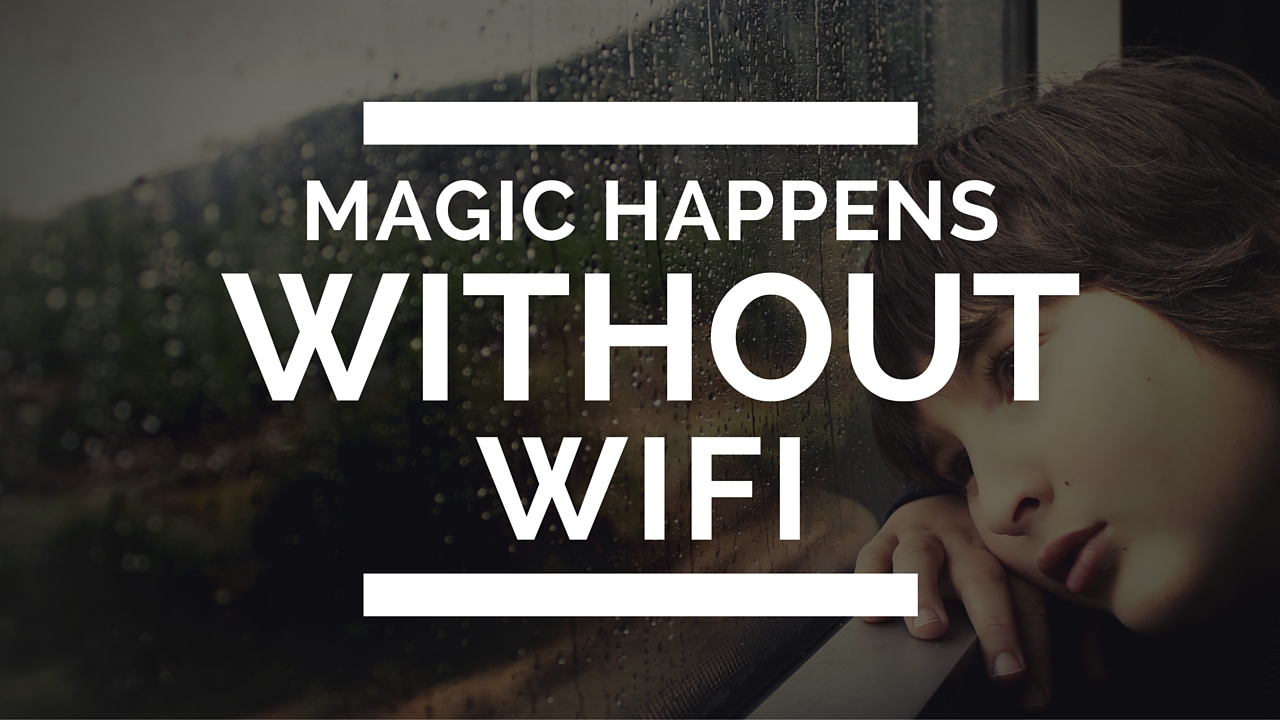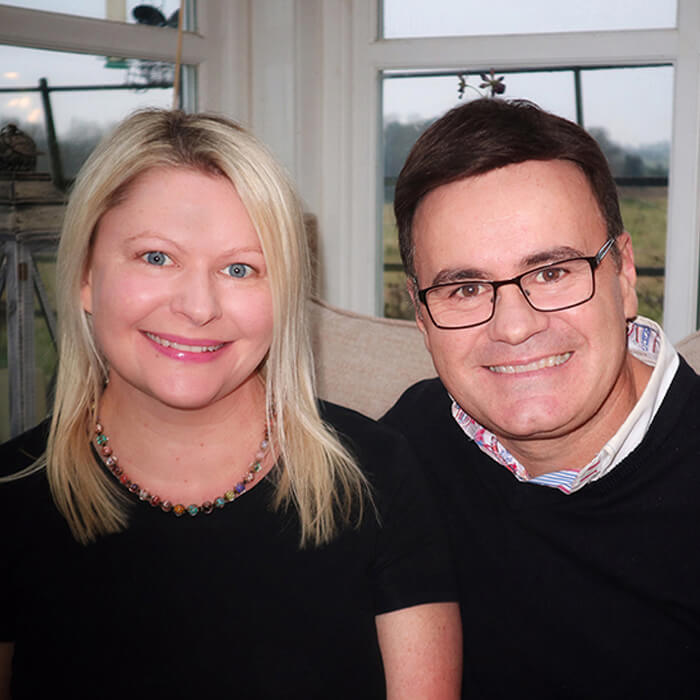
by Sarah Blinco | Dec 26, 2016 | Lifestyle
…out with the old ‘goals’ and in with some smart, mindful actions that are very NOW: how I’m preparing for a new year
I think after 37 years of experience I’m a little done with devising goals when preparing for a new year. But I do believe in setting intentions and maintaining some kind of vision about where you see yourself headed.
If you can’t see it (or importantly, feel it) then how do you know ‘it’ when it shows up?
I’m often asked about the processes I implement coming into a new year. Recently I’ve developed a suite of tools and tips that have proven to be helpful for friends trying to either set themselves up for the months ahead, or recover (faster) from bad news and tough times.
While we do have the opportunity at any time of the year to begin fresh; even any time of the month, week or day (and God knows I’ve been practising that recently), January is a nice time to try to set yourself up for a positive start.
I’d like to share what works for me, and what I’m doing now to prepare for the new year.
Personally this year has had definite high points, however it ended up a bit rocky. But that’s ok – it’s life, right? As Anne [of Green Gables] says, each day is a chance to start fresh.
Onwards.
How I’m preparing for a new year
I seek positive, helpful books for reading during the holidays
I plan to use the holiday break to get stuck into a few good reads intended to motivate and inspire me.
My go-to authors are people like Gabby Bernstein and Rebecca Campbell who write about life, business, spirituality and strategies on how to make space in your life for the important stuff, as well as how to move through difficult times faster.
Of course, your go-to books might be about goal setting, fitness, healthy eating, mindfulness or on a subject you aim to know more about in 2017 like learning a language. It’s all good!
I find investing just twenty minutes a day in reading something positive, interesting and helpful can shift your energy and perception.
If you’re too tired to read, try finding a podcast or listen to audio books as an alternative.
I subscribe to regular free broadcasts
We’ve all heard of YouTube, but did you know you can utilise it for much more than getting the odd laugh out of dog and cat clips?
If you sign up for an account (and here’s why you should do that) you can subscribe to inspiring broadcasters you find on the platform.
Some YouTubers now have more influence than most people on television, and no matter what you’re into, there’s a daily or weekly vlogger who can supply you with a dose of inspiration and motivation each week.
About a year ago I got into watching Doreen Virtue‘s weekly oracle card readings. She’s cute and quirky but quite possibly not for everyone (obviously, angel cards and tarot isn’t for everyone, anyway!).
However, every Monday morning first thing I take a look at her ten to fifteen minute broadcast for the week (I’ve come to love her). She reads three cards that she pulls from a deck and quite surprisingly I find her readings to be accurate.
BUT I should stress that I’m not actually looking at this to view my ‘fortune’ for the week.
I watch it for the messages I can take away to apply to situations in my life, whether they be challenging work or personal problems that I’m looking for a fresh perspective on, or words of wisdom I can share as advice with friends.
These resources are free and at our fingertips, and finding something to engage with on a regular basis that encourages a positive perspective shift – whatever you need – is a healthy way to pass the time, I think.
It’s something I’ll focus on with any spare time this holiday season, and a habit I’ll continue into next year. I hope you choose to take advantage of this type of resource too.
I’ve engaged advice from a coach
An opportunity to work with a life and business coach popped up in my sphere very recently.
I’ve engaged in this type of activity before but for a slightly different purpose (back then I had the intention of gaining a new perspective on building my own business).
This time around, I’m aiming to see things differently in my life and career and to learn new strategies for dealing with situations that are unfamiliar to me.
I find I’m very happy to help and mentor others and am proud to have achieved a level of success in doing so.
But when it comes to getting yourself out of a rut sometimes you need a fresh pair of eyes – and someone who is trained in this art is even better!
In our first session I outlined issues that I could simply not see a way out of, and left the session with a set of action points that really gave me my power back and made me feel so so much better and in control.
I realised that engaging in this activity before the new year is preferable to starting after January 1 has ticked over (although obviously any time is a good time to begin).
When I talk about ‘coaching’ though, for you this could mean in the fitness, health, Yoga, meditation, business, personal or spiritual sense.
I think we can all do with guidance, and you definitely need the help of the right person, but if you’re on the lookout for them, I believe you’ll know and feel it when they appear.
And of course, if you’re serious about making real change (eg. getting fit, quitting smoking) make a call and set up an appointment with an expert now, and maybe even invite a friend along too so you can keep each other accountable.
I get serious about gratitude
There’s no faster way to make yourself feel better or to attract positive things than to mindfully consider all the things and people you’re grateful for.
Big, small, unexpected or the constants in your life – begin it now and I guarantee in under 60 seconds you’ll feel better about yourself and the world.
Using kindness and gratitude as a tool moving into the new year, set the intention to remember these things; recall them, revisit the list, add to it and send a little love back to those people on it to remind them about the good in the world.
This isn’t about forgetting the atrocities that go on around us; on the contrary, it puts things into perspective and is a reminder to help out where we can.
Also, by giving more energy to the drama the television news generates, we’re perpetuating that negativity and it’s not helpful!
There are just as many like-minded souls such as you and I who are doing our best to bring the light – we can never have or contribute too much of that!
On that note, I really enjoyed this story by Bernadette Russell in Balance Magazine (December 2016) on being kind at Christmastime and how often the nicest thing we can offer anyone is our time.
I write things down
Using a good old notebook or an app like Evernote or OneNote, when preparing for a new year, write down the things you want!
I have several years worth of experience writing ideas, wishes, dreams, plans down (funnily enough, often done during long flights); I’ve written down what I want to see happen, that I intend or that I want… I have later come across these lists and am so surprised to see what has actually manifested!
The power of putting it on paper is proclaimed by so many motivational speakers, coaches, authors, successful entrepreneurs… you name it.
I don’t know what the magic behind it is (although I know a bit about the Law of Attraction and believe it to be true from personal experience); but write it down because wow, I’ve seen it work first hand – even before I knew about any of the things I talk and write about today.
A tip: try not to be too manipulative when it comes to specifics around working in a certain business or seeking a particular person as your new romantic partner; a neat trick to try is writing down how you want to feel.
In other words, what you want or what is for the greater good might not come in the exact form you imagine, but it will come, and it will be better. Write it down.
In one of my favourite Gabby Bernstein lectures (via podcast on iTunes) she talks about how to develop what she calls a ‘desire statement‘.
The process is made up of three parts:
- Write down a list of what you want right now in your life;
- Then make another list about how these things will make you feel;
- Following this activity free write (that is, simply write whatever comes to mind, no editing) for two to ten minutes after pondering these things you want to receive in your life right now.
- When you’re done, go back and underline any significant words or phrases that particularly resonate with you.
- From there write and edit your ‘desire statement’ into a clean, succinct, positively worded paragraph that you should then read and reflect on day and night. Use language like, “I want to be abundantly rewarded for a job I love and in a workplace where I’m valued…” rather than, “I don’t want to have trouble paying my bills and I don’t want a job where I’m not respected.” (note the difference in language used).
Surround yourself with your new intention, read it aloud consistently, and watch it come to life.
This manifestation technique has worked for me and friends so I personally vouch for the process. All it takes to work is your time commitment.
If you want an example of one of these or would like input on your own for the new year, drop me a line in the comments.
Onwards
Christmas can be indulgent – who cares, just go with it.
But be aware of balancing some healthy activity for your body, mind and soul.
After a tough few months I’ve become very aware of the fact that I don’t want to be someone who moans or ‘carries on’.
Yes, life is filled with hard times, difficult characters, sickness, sadness, challenges both personal and professional, but without those things we wouldn’t be able to appreciate the good. Nor would we be able to lean on faith and positive, nurturing activities that we can take responsibility for on our own (like the ideas I have outlined above)!
If I can help just one with something in here, then I’ve done my job.
Drop me a line in the comments if an idea here has sparked inspiration in you, or if you have other tips to add then we’re always grateful to hear from you.

by Sarah Blinco | Nov 19, 2016 | Creative travel experiences, Lifestyle
I now have loads of law of attraction success stories, which I feel fortunate about. But there was a time when this was all new. Recently, I experienced a really really terrible week. That was followed by several weeks prior that weren’t much better.
Appreciating the journey: my law of attraction success stories
I’d been faced with countless deadlines and challenging situations in all of life’s fundamental areas. Top it off with a seriously ill loved-one and me feeling generally unsupported. I hit one of those awful places in time where I was finding it difficult to get up in the morning. Inevitably something had to give, and it’s where one of my big law of attraction success stories begins.
I was stuck on where to start and how to ask for help to see things differently.
My mood matched that of the now-wintry grey English skies.
As one to usually be able to drag myself out of feeling miserable, I found myself in a place where I didn’t know what to do next. I was depressed, teary and withdrawn.
I waited for the clock to tick down at work each day. I felt utterly awful, and even more down because usually I’m happy there. I enjoy my days and make a point of trying to make someone else’s day a bit brighter too.
Ironically, someone I turn to for genuine and useful advice was also having a terrible week. While I appreciated the odd bit of sympathy gained here and there, I basically felt really alone.

Getting out of a hard place
Seems to be the way when down times hit. I’m sure you know the feeling well – we’ve all been to this place.
There’s a difference between feeling a bit down and being depressed, and my mind wasn’t in a great place. I was depressed.
Thanks to the tools I now carry with me though – those law of attraction success stories – I knew it was up to me to crawl out of it, no matter how hopeless I felt.
Engaging with the law of attraction: small changes
I still insisted on hiding under my warm quilt covers instead of going to the gym in the mornings. But despite feeling like I was easily set-off at every tiny little thing that could be perceived to be going wrong each day, during my morning commute I endeavoured to try to lift my own spirits.
Friends know I’m a huge fan of author and speaker, Gabrielle Bernstein, and her new book, The Universe Has Your Back, had been sitting on my Kindle for a few weeks.
I felt like it might be time to open it up.
On the bus each morning, I read just a few pages at a time, absorbing one small idea a day and taking it with me into work.
The one thing that struck me in the opening pages of the book was Gabrielle’s discussion about how we are the dreamers of our dream; we are responsible for what we see.
I knew that I was feeling sad and disappointed, and that there were reasons which had led me to that place. I have learnt that it’s ok to feel down about things sometimes, for a little while.
But, I knew the way I was feeling was not how I wanted to continue feeling. I didn’t want to be taking it with me everywhere and I sure as hell didn’t want to be projecting it into the world. I’m well aware that what I put out will come back in larger doses.
I wasn’t even sure where or how to ask for help and didn’t have any idea how I’d be able to shift what I was seeing in front of me.
I highlighted in Gabby’s book:
“You don’t have to be a world leader to have a radical shift in perception. Sometimes it can be as simple as choosing to perceive your job with more gratitude or your family with more love.”
I practised this in my head and in writing, and it helped a bit.
I knew if nothing else, just trying would raise my energy (and therefore what I was attracting) just a notch.
How to ask for help and to see things differently
I was still in a horrible place and this didn’t help me move through to anywhere significantly better. I felt particularly low that I was lost and without an idea of what to do moving forward.
Which is why this next part of Gabby’s law of attraction success stories and advice was very helpful and as always, timely. It’s why I feel compelled to write a few words about it.
You see, I’ve realised in recent years that we don’t have to have the answers all the time. We don’t necessarily need to worry about figuring out what to do. (This coming from someone who feels very uneasy without a plan!)
All we need to do is ask for help.
“I need help. I want to see things differently.”
I am completely aware of this strategy but typical of being in a hopeless funk, we often forget to follow the advice we give to others.
I’ve used this strategy previously when I’ve been at the end of my options (or seemingly so). I’ve called on my law of attraction success stories and experience when I have wanted to make a difference to loved ones having a hard time.
I stop and ask for help – a miracle even. And, I must say, I’ve seen it work each time.
The part about seeking a different perspective is reasonably new to me – or at least, specifically seeking a new perspective as a strategy is novel.
But how would it work?
I wasn’t sure, but it seemed straightforward and something that I could call on even when I was feeling hopeless.
I went about making this my daily mantra – asking to see things differently.
I fumbled my way through the week still feeling like a right old miserable mess, and half feeling like my crazy self-help strategies were failing me.
But being the believer that I am, I persisted.
“Help me see things differently”.
And then it happened, out of literally nowhere, some news that changed the way I would view a scenario that was getting me down the most.
Something that had felt hugely disappointing turned out to be hopeful.
Then the next day, additional information came my way that lifted a veil of uncertainty over another upsetting situation that I’ve been holding space for.
I’d asked to see things differently. I had no idea how any of it would go, after all, that’s part of the reason I was feeling so depressed – I couldn’t see my way out of problems I was perceiving.
I kept asking to see things differently. Low and behold, that’s what happened in a relatively short amount of time from when I started asking for help!
Apparently the universe does have my back, and I’m glad to have had the chance to witness it.
Make changes
Want more practical law of attraction exercises and advice? Read more here about how to implement gratitude, manifest money and dream analysis to make shifts in your reality.
Do you have any law of attraction success stories to share that might help someone else? Or did this piece help you? Let me know in the comments.

by Sarah Blinco | Jul 18, 2016 | Career and mindset, Lifestyle, Travel Live Learn in the media
After a very nice break away, yesterday I returned to discover a bulging inbox which left me feeling more than a tad overwhelmed, and to make matters worse, one of the first emails I opened turned out to be a lengthy rant about a piece of content I hadn’t complemented with a photo. The feedback was reasonable enough – I had been forced to rush through a digital feature that was to be attached to a marketing email, and the copy had been supplied at the last minute. Because I was extremely short on time, I failed to include a larger photo on this accompanying attached content, and absolutely agree that it would have been the better way forward. No excuses, and I for one am well aware that the best learning usually comes from recognising the mistakes I’ve made (or how I could have improved).
Only thing is, this message from a reader was shared in such a way that it was upsetting, and the tone of voice used was that of an individual who came across (in this email, at least) as one who assumes they know better.
It was really obvious they had not considered:
- My (as the content creator) feelings and the amount of work actually put into the entire body of work in the first place.
- Other time constraints and workload pressures I might be facing.
- All the other things in the overall campaign I’d actually got right!
Do you know the feeling?
Many of you reading this spend much of your day putting yourselves ‘out there’, creatively speaking and otherwise. Whether you are broadcasting on air, writing, blogging, filming, painting or working in PR and communications – it’s all a bit of a risky business for the ego. Some would even say we’re brave for doing it. I know a lot of people who are apprehensive about sharing their ideas, content or stories for fear of any type of criticism.
As content creators and communicators, we are consistently in a position where we need to produce written work or other creative output (videos, social media, blogs, magazine features etc.), and with that opportunity comes the people who are quick to judge our work, and not often in a constructive way.
We’re all pretty used to being ‘judged’, and I think most of the time this actually helps with positive personal and professional growth. Cooper and I began our careers in radio – an industry rife with arrogance and daily criticism of your work! That said, when delivered well, this really can help you become a far better on-air announcer than you ever would without feedback. Similarly, my mentors in publishing consistently showed me better ways to phrase, word, style and so on. This is how we hone a craft. This experience also helps you to develop a thick skin, which is something of a necessity in this and many other lines of work.
Criticism delivered in a negative, thoughtless or hurtful way though (whether intentional or unintentional on the part of the person sharing it), can have an adverse impact on self-esteem and confidence, and for those working in communications and creative industries, it has the potential to cause real problems.
People tend to be quick to pick problems, but very slow to share praise or thanks in the form of emails or comments on social media, websites or blogs. Have you ever been on the receiving end of destructive criticism and what kind of impact did it have on you?
These kinds of experiences remind me to think twice if I catch myself being judgmental and critical of other people’s work, because actually, they’re likely to have put much time and effort into the ideas, reason and production of the content being consumed out there in the public domain (whether you thoroughly enjoy it or not). Sharing feedback on someone’s published work is actually challenging their abilities and ideas, and it’s reasonable to expect that what comes back – if not entirely positive – should be designed to help them grow.
Moral of the story: give feedback constructively not destructively; and if you’re on the receiving end, take the valuable learning from it, and leave the rest at the door.
Today’s challenge: When you see something online today (on social media, a website, news site or blog) that’s helpful, makes you smile or feel inspired, drop a positive comment there to let the person behind it know you appreciate the thought and time they’ve put in.

by Sarah & Cooper | Feb 7, 2016 | Being a digital nomad and working abroad, Creative travel experiences, Lifestyle, Travel blogger destinations, Traveller tales and interviews
Lorraine Dawson decided to learn Spanish a few years ago, after harbouring a desire to do so for many years, but simply never having enough time to begin.
She didn’t let living on the Gold Coast in Australia deter her, and went about finding classes and tutors who could enlighten her on how to learn a language at any age.
Last year Lorraine finally had the chance to put her skills to the test on a visit to Barcelona.
We think she is a wonderful example of someone who overcame fears and challenges of learning a new language, particularly as a mature student, so we have asked her some questions on how she did it, what she’s up to now and her advice for others who might like to try…
How to learn a language at any age
Why did you choose Spanish as the language to learn?
 Four years ago (2012), after being retired for six years, and at the age of sixty eight, I looked up the U3A (University of the Third Age) website to see what courses were on offer, and to my delight, ‘Learning Spanish’ was one of them, so I decided to enrol.
Four years ago (2012), after being retired for six years, and at the age of sixty eight, I looked up the U3A (University of the Third Age) website to see what courses were on offer, and to my delight, ‘Learning Spanish’ was one of them, so I decided to enrol.
I had been misinformed about Spanish being the easiest language to learn, which is why I chose it! I actually never had any specific language in mind.
When did you start studying?
When I turned 68 I decided it was time to stop procrastinating and enrol. Signing on for my first Spanish course was an achievement in itself. To say I was a little nervous and anxious would be an understatement.
Our teacher was a Spanish-speaking lady called Trinidad, who comes from the Canary Islands. There were about fifteen people in the class, twelve of whom had already been studying for a year or two, and some already knew another language, apart from English. There were three of us who were beginners.
I would be lying if I said I found it easy to start with. We had typed sheets from which we worked, and at first I didn’t know where I was. For the first year I felt embarrassed that I could not answer the questions or translate the reading, which was in Spanish.
This was compounded by the fact that except for the beginners, everybody else could. I realise I had unrealistic expectations about how quickly I might grasp the language, but that is how it was. It was hard. One of the ladies who started with me dropped out after a few weeks, and the other one dropped out of the class after the first year.
Can you explain a little about the steps you’ve taken through the process of learning Spanish?
I went for one hour a week, and we did not go in the school holidays. We had homework. The first year was the hardest.
The second year was better. Our teacher went overseas for four months, and did not continue teaching at U3A. She decided to teach the class at her home, and we were separated into an intermediate class, of which there were three of us, and an advanced class.
The two ladies in my class have sons who live in Spain, and had married Spanish girls, so they decided to learn Spanish to be able to converse with their daughter-in-law and their families.
I progressed much better in the second year.
Once we were separated into an intermediate class where there were just the three of us, I felt more comfortable being with people who were on a similar level to me in the learning process.
Almost all of the people in the two classes were retired school teachers, whereas I had left school at fifteen. I would forget what a “conjunction” was, but I just asked to be told again, whereas the retired teachers didn’t forget these sort of things.

What did you gain out of actually having the chance to be immersed in the language in Barcelona in 2015?
I went to Spain with my son for five days and I made sure every day that I was there that I spoke Spanish as much as I possibly could, even if it was just asking for a cup of te con leche, por favor (tea with milk please). It was such fun.
When I arrived at the hotel, I informed the staff on reception that I was learning Spanish, and that I would be attempting to speak to them in their language, and would they please correct me when I was wrong.
They found this quite amusing, and were happy to oblige. My son was impressed with how well I was doing in learning Spanish. Being amongst the Spanish people inspired me to want express myself in their language while I was there, and I found they really appreciated the fact I was making the effort.
I won’t insult your intelligence by saying it is easy to learn a language at any age or at my age, but I have gained so much from trying. I have made it a personal challenge.
I keep telling myself, “You can do this, I AM doing this, and I will not let it get the better of me.” I am most determined about it. You don’t always remember what you have learnt, but that is OK, other people don’t either.
What are your best tips on how to learn a language at any age, for anyone keen to get started this year?
 I would highly recommend to anyone considering learning a second language, to go for it. It really gives you quite a boost when you see that you are capable of doing it.
I would highly recommend to anyone considering learning a second language, to go for it. It really gives you quite a boost when you see that you are capable of doing it.
Don’t worry if it seems hard and you think you will never get it. It does get easier with time! If you are a senior like me, I am sure it helps with your memory, and what an achievement that you are getting out of your comfort zone and trying something new. Just do it.
What do you think you personally have gained from pursuing the learning of a language, despite not travelling all the time?
I have made wonderful friends from the people in my class, especially my Spanish teacher, who now teaches me how to cook Spanish dishes, and always brings to dinner a bottle of Sangria which she has made.
The class have had social outings to restaurants where Spanish is spoken, and we have people from Spanish speaking countries come to our class to converse with us. I find it all such fun, and we have a lot of laughs, especially at our mistakes. Just get involved and you will get so much out of it.
Meet more of our travelling friends: why not take a wellness trip to Turkey, or find out what it’s like living as an expat in Serbia.
How to learn a language at any age – start here
If you’re reading this then you can get started online now. You could try:
MOOCs
Signing up for a MOOC (Massive Open Online Course) – see what’s on offer at Future Learn, iVersity, edX or Coursera – it’s free!
Apps
Top apps to help you learn on the go include Duolingo, Babbel, MindSnacks, Basuu, and Memrise.
Resources
A helpful places to start on working out the best way to learn Spanish for you is featured here on hobbyhelp.com
Software
Or see if any of this software is helpful – here’s a recent guide compiled by PCmag.com.
Do you have a question or comment? Drop us a line in the space below, or on Facebook or Twitter.

by Sarah Blinco | Jan 30, 2016 | Creative travel experiences, Lifestyle, Travel blogger destinations
~
Something magical happened this morning as I dwelled in life without WiFi. I couldn’t access any internet on a dawn train trip out of London, and in true form I’d planned to use my hour journey south to clear my email inbox. It wasn’t meant to be. Even my phone’s 3G wasn’t working, so social media wasn’t an option. Old school it was, then.
I sat back in my seat and watched the world flash by; a monochrome storyboard of England’s rich landscape.
As we rolled smoothly out of Victoria station, I was reminded once again how beautiful London is under the sleepy veil of morning darkness. Clean and crisp following an overnight storm, buildings and roads shone and the little lights dotted around construction sites along the Thames sparkled as if the city’s Christmas decorations were still on display. Leaning my head against the windowpane, my upward gaze mindlessly followed the paths of airliners gliding ever so gracefully; dark grey shadows, like ghosts against the pitch black sky.
I find the landscape here to be so enchanting, as urban sprawl unfolds towards Croydon – once upon a time I used to embark on this path daily. Here, I see evidence of the city’s years etched into the streets and rows and rows of old homes crowded against each other. Chimneys and steeples stretch into the sky, each harbouring stories of eras gone by.
Music played on in my earphones, and I recalled lengthy Greyhound coach trips as a university student in Australia, commuting between cities – pre-mobile internet; that would be my imagining time, when songs became soundtracks to narratives taking shape in my mind. A lyric from one of my favourite classic INXS tracks caught my attention: “We all have wings, but some of us don’t know why”, and just as it was sung, I looked around to see a section of an advertising billboard directly in my view – two golden wings proudly and preciously on display.
Life without Wifi meant I caught the loveliness of dawn as the sun rose across the UK on this day, which falls at the end of what was a week full of fantastic change for me; and pretty much at the end of January (already!). I enjoyed the subtle transition of cityscape to water-drenched patches of deep-green countryside. I hung out in the worlds of my most treasured music tracks, and was present for sweet moments and signs all around me that I simply would have missed had my nose been in my iPad. I had the opportunity to be reacquainted with the pleasures of observing, dreaming, and being inspired to put pen to paper (or fingers to keyboard, as the case inevitably will be). What a nice gift it was, to live once again with a beginner’s mind and indulge in the pleasures I thought were only on offer to me as a creatively indulgent teen (apt that it should occur the very week The X-Files returns).
Life without WiFi – I’d encourage you to try it, more than once this week.

by Sarah Blinco | Aug 6, 2015 | Career and mindset, Lifestyle
Lately I’ve encountered an array of ‘temperamental personalities’ within workplaces where I’ve been contracting; nice, intelligent, motivated people, but prone to breeding ill-feelings due to ongoing ‘bad days’ and in some cases, weeks!
One such example: a magazine designer, Anna, all of a sudden got very moody and sullen at work a few weeks back, to the point where she was obviously being very short with other staff (women, in particular). The primary-school-esque behaviour was not something I’d expect in a professional adult setting, but it seemed to me things were happening at home that were being brought into the office (not necessarily professional, but it happens). What followed was also fairly immature − other team members began gossiping about what Anna’s ‘problem’ was, and in turn ended up feeling miserable themselves. After a few weeks, Anna seemed to move on from her moodiness, but one other on the team, Kelly, has taken it all to heart. She’s harbouring resentment, and now this workplace’s communications team aren’t as communicative as they deserve to be.
None of us are immune to getting involved in this kind of thing. We’ve all got clients, friends, bosses and co-workers who are occasionally (or consistently!) moody and pessimistic, and it only takes one snarky word on a bad day, or a rude snub when we’re doing our best to smile in the first place, for a ‘snap’ to take place, and then the spiral downwards begins. I’m sure you can appreciate that awful feeling, when things go from bright and bubbly in a relationship(s), to strained and cold. It’s awful, and incredibly difficult when it happens in a space where you’re forced to spend a lot of time.
 All this negativity can be draining, but after a couple of weeks witnessing what was happening amongst this otherwise-nice group of people, it occurred to me that it wasn’t (and mostly never is) the actions of the person being a bitch/in a bad mood/having a rubbish day/acting like a negative Nancy, that makes a room dull with downer energy. It is actually, us, or accurately, those who play into someone else’s problem, and make it a bigger issue than it needs to be.
All this negativity can be draining, but after a couple of weeks witnessing what was happening amongst this otherwise-nice group of people, it occurred to me that it wasn’t (and mostly never is) the actions of the person being a bitch/in a bad mood/having a rubbish day/acting like a negative Nancy, that makes a room dull with downer energy. It is actually, us, or accurately, those who play into someone else’s problem, and make it a bigger issue than it needs to be.
We may like some co-workers, clients, sales reps, consultants and supervisors we more than others, and that’s ok. But inevitably, a lot of time is spent together as we each toil to generate income, so what if we were to choose to focus on defusing dark situations rather than simply focussing ON the situation alone.
Here’s what I’ve learned │ co-working karma
- Let it go; everyone has ‘their thing’ going on.
- Be forgiving (it’s more pleasant than being resentful).
- Practice kindness – often that’s the ingredient missing in others’ lives.
- Don’t be afraid to instigate peace – grudges are so last decade.
- Choose better thoughts; the more you worry about the issue, the bigger it becomes.
- Devise ways for your team to get-together socially – a relaxed, fun out-of-work environment can put people at ease, assisting individuals to move past office-related issues.
As always, two choices exist. We can spend time being bummed about a situation or someone’s bad attitude; or we can bring light and a little love to the experience. It’s as easy as starting with ourselves, and considering whether or not we’re taking ownership of the energy, actions, attitude and beliefs we are individually putting forward.
If you’re currently having difficulties in your work life, try this before reacting defensively or destructively: think kindly towards those causing you grief. In your mind, wish them a day as nice as you hope yours will be, and try to get into this kinder mindset before setting foot in the office or into the meeting you’ve been dreading. It’s easy to forget that everyone has their own thing going on, and that it’s up to us to each show up with grace, gratitude, and a tidied-up attitude. With this in mind, it could be you who singlehandedly brings warmth to cold times.
By Sarah Blinco. Originally published, Get it Magazine, June 2015






 Four years ago (2012), after being retired for six years, and at the age of sixty eight, I looked up the U3A (University of the Third Age) website to see what courses were on offer, and to my delight, ‘Learning Spanish’ was one of them, so I decided to enrol.
Four years ago (2012), after being retired for six years, and at the age of sixty eight, I looked up the U3A (University of the Third Age) website to see what courses were on offer, and to my delight, ‘Learning Spanish’ was one of them, so I decided to enrol.
 I would highly recommend to anyone considering learning a second language, to go for it. It really gives you quite a boost when you see that you are capable of doing it.
I would highly recommend to anyone considering learning a second language, to go for it. It really gives you quite a boost when you see that you are capable of doing it.

 All this negativity can be draining, but after a couple of weeks witnessing what was happening amongst this otherwise-nice group of people, it occurred to me that it wasn’t (and mostly never is) the actions of the person being a bitch/in a bad mood/having a rubbish day/acting like a negative Nancy, that makes a room dull with downer energy. It is actually, us, or accurately, those who play into someone else’s problem, and make it a bigger issue than it needs to be.
All this negativity can be draining, but after a couple of weeks witnessing what was happening amongst this otherwise-nice group of people, it occurred to me that it wasn’t (and mostly never is) the actions of the person being a bitch/in a bad mood/having a rubbish day/acting like a negative Nancy, that makes a room dull with downer energy. It is actually, us, or accurately, those who play into someone else’s problem, and make it a bigger issue than it needs to be.